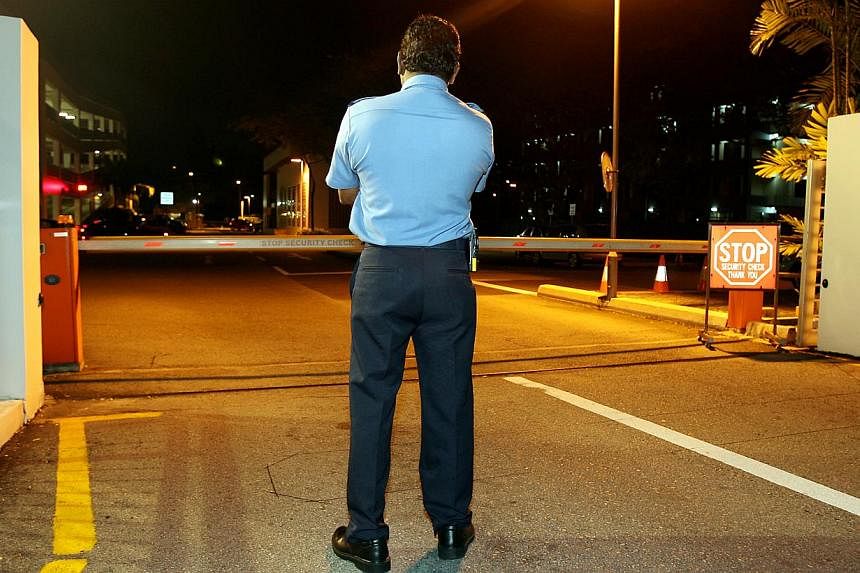Only Singaporeans, permanent residents and Malaysians can work as security guards in Singapore. And all security guards are individually licensed by the police.
To apply for a licence, applicants must take a one-week course certified by the Singapore Workforce Development Agency (WDA).
It covers basic skills such as how to answer the telephone and take notes, as well as how to respond when the fire alarm goes off or check on vehicles and suspicious persons.
Curiously, one of the first things trainees are taught is: Do not speak to reporters.
The courses are conducted by the National Trades Union Congress (NTUC) and the Security Industry Institute set up by Temasek Polytechnic and the WDA. Security firms like Aetos and Apro also run these courses.
Course fees vary between $550 and $800, but Singaporeans and older workers pay as little as $34 with government subsidies.
Those who pass can apply to the police to be licensed. Anyone with a criminal record may have his application rejected.
Former policemen and SAF regulars are exempted from the training, but also have to be licensed.
Licences cost $16 each and are valid for five years. But they can be withdrawn if a guard runs foul of the law.
There are 70,000 people qualified to work as guards, but only 29,000 locals and 4,000 Malaysians actually do so. There is a shortage of 10,000 guards.
People shun the sector because of the low basic pay and long working hours - 12-hour shifts, six days a week.
Security guards earn a basic pay of $817 a month and $1,678 with overtime, according to Manpower Ministry official data released in June.
An NTUC-led committee of unionists, government officials and security industry associations has launched a "progressive wage model" for guards - a wage ladder that ties basic salaries to training. Under the plan, which kicks in from September 2016, guards will earn a minimum monthly basic pay of $1,100 per month and supervisors, $1,500.
This story was first published in The Straits Times on Sunday, Nov 23, 2014

